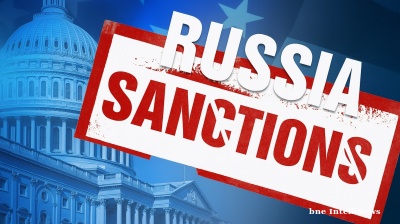Belarus economic mismanagement and Belarus President Alexander Lukashenko growing proclivity for Soviet-era fixes has caused a potato crisis that is emblematic of Belarus’ deepening economic problems.
Lukashenko roasted his top officials at a televised Cabinet meeting for failing to contain soaring potato prices at the end of March as supplies on the market dried up.
“You didn't do it and you'll answer for it,” Lukashenko said. “It turns out we don't have potatoes. How much has the price of potatoes gone up? Can't we produce the right amount of potatoes, put them in the cellar and then sell them to people?” "Why? It doesn’t store well? I warned you last year how it should be stored. I gave you the example of Shuleyko from Alexandria. They built a storage facility. God forbid I drive by and stop there, and it’s not filled to the ceiling."
The ministers shifted uncomfortably in their chairs as they underwent this tongue lashing. Lukashenko had tried to curb the crisis by introducing fixed prices for spuds, but all that did was drive farmers to export their potatoes to Russia for much higher prices, which is also experiencing a shortage.
Increasingly isolated by EU sanctions imposed after the Belarusian strongman allowed Russian President Vladimir Putin to launch an invasion of norther Ukraine from Belarusian territory in 2022, the economy is slowing and Russia’s growing economic problems are now spilling over the border to affect Belarus.
The last economic figures reveal a sharp loss of momentum, with weak growth, swelling trade deficits and rising inflation leaving Minsk increasingly vulnerable to external shocks. According to data for the first half of the year, GDP expanded by only 2.1% y/y, compared with 5% in the same period of 2024. Industrial output grew by just 0.3%, while inventories of unsold goods rose at state-owned factories.
Foreign trade is now the most acute problem. While the overall trade turnover of around $41bn matched last year, the balance deteriorated rapidly, with the deficit nearly doubling from $1.7bn to $3.1bn. Exports to non-CIS countries fell by $700mn while imports increased by $800mn, producing a $4.2bn negative balance. Inflation accelerated to 7.3%, up from 5.8% in the first half of 2024.
“Clear signs of a downturn in foreign trade currently represent the main threat to the stability of Belarus’s economy. This is due to the declines recorded in recent months in the sale of agricultural machinery, trucks, and other products to Russia,” said Kamil Kłysiński of the Centre for Eastern Studies (OSW) in a note. “If lower demand in that market persists, it could, in the coming months, lead to a further deterioration in the condition of Belarusian industry, which accounts for approximately 20% of the country’s GDP.”
Trade with non-CIS partners has been particularly poor, reflecting the effectiveness of Western sanctions and the spill over effects of the Russian slowdown. Russia’s economy has been growing strongly for the last two years, but this year it narrowly escaped a technical recession over the first half of 2025.
“Poor results in trade with non-CIS countries indicate, on the one hand, the effectiveness of Western sanctions (which have reduced the EU’s share in Minsk’s trade from over 30% to 5% over the past five years), and, on the other, highlights the very limited potential of the so-called ‘expansion’ of Belarusian exporters into the markets of Africa, Asia, and South America,” Kłysiński noted.
He also pointed to domestic imbalances, with wage pressures fuelling inflation. “The large-scale emigration following the political crisis of 2020, combined with demographic decline, has led to a labour shortage in the domestic market – the number of job vacancies now exceeds 200,000,” he said. “The wage increases offered by employers in an effort to maintain staff stability… are a pro-inflationary factor, also fuelling demand for imported goods, which further deepens the trade balance deficit.”
Looking ahead, he warned that prospects for stabilisation remain weak. “There appears to be little indication of any reversal or slowdown in the downward trends. The marginal GDP growth that remains is driven primarily by domestic investments, including in construction. However, given the limited resources of both the state budget and local companies, these cannot form the foundation of economic development.”
According to Kłysiński, the authorities’ mishandling of the potato crisis illustrates the government’s weakness. “Effective anti-crisis measures from the authorities are also unlikely – the government’s incompetence in this area was clearly demonstrated by its response to the severe potato shortage that has persisted since the spring,” he said.
Opinion

COMMENT: ANO’s election win to see looser Czech fiscal policy, firmer monetary stance
The victory of the populist, eurosceptic ANO party in Czechia’s parliamentary election on October 6 will likely usher in a looser fiscal stance that supports growth and reinforces the Czech National Bank’s recent hawkish shift.

COMMENT: Ukraine's drone attacks on Russian refineries have probably reduced throughput by 30.4%, less than headline figures suggest
Ukraine has been hitting Russian refineries and caused a fuel crisis that has spead across multiple regions. The headline figure is that oil refining has been reduced by 38% since August, but digging into it and the reduction is likely less.

MACRO ADVISORY: The unintended consequences of Western sanctions
Since 2014, Western nations have hit Russia with a total of 26,655 sanctions (to mid-September 2025), with 23,960 coming after February 2022. The largest target group, with 13,611 sanctions, is state officials, business owners, and oligarchs.

PANNIER: Few will mourn passing of Turkmen Iron Lady Atajanova and Uzbek Grey Cardinal Jurabekov
Their deaths seem to have been conveniently overlooked for the most part by the authorities of today.
_Cropped_1759411324.jpg)



